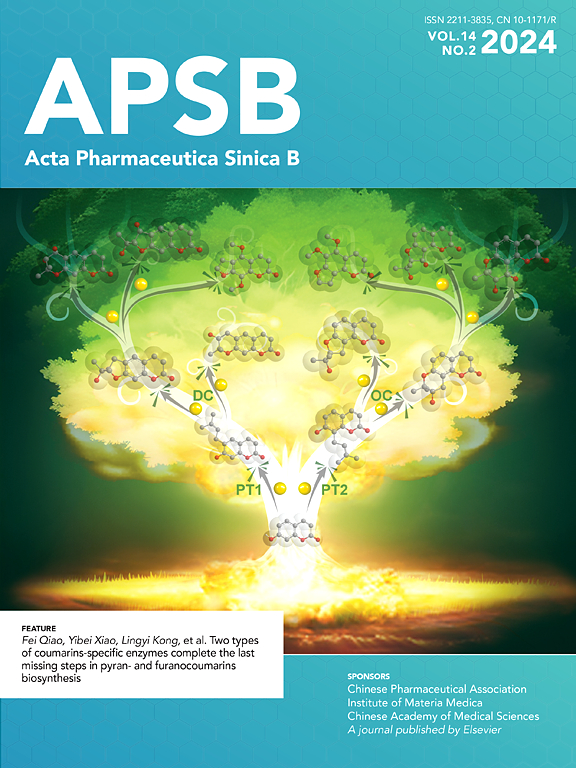Trends in intestinal aging: From underlying mechanisms to therapeutic strategies
IF 14.7
1区 医学
Q1 PHARMACOLOGY & PHARMACY
引用次数: 0
Abstract
Intestinal aging is central to systemic aging, characterized by a progressive decline in intestinal structure and function. The core mechanisms involve dysregulation of epithelial cell renewal and gut microbiota dysbiosis. In addition to previous results in model organisms like Drosophila melanogaster, recent studies have shown that in mammalian models, aging causes increased intestinal permeability and intestinal-derived systemic inflammation, thereby affecting longevity. Therefore, anti-intestinal aging can be an important strategy for reducing frailty and promoting longevity. There are three key gaps remaining in the study of intestinal aging: (1) overemphasis on aging-related diseases rather than the primary aging mechanisms; (2) lack of specific drugs or treatments to prevent or treat intestinal aging; (3) limited aging-specific dysbiosis research. In this review, the basic structures and renewal mechanisms of intestinal epithelium, and mechanisms and potential therapies for intestinal aging are discussed to advance understanding of the causes, consequences, and treatments of age-related intestinal dysfunction.

肠道衰老的趋势:从潜在机制到治疗策略
肠道衰老是系统性衰老的核心,其特征是肠道结构和功能的逐渐下降。核心机制涉及上皮细胞更新失调和肠道微生物群失调。除了先前在黑腹果蝇(Drosophila melanogaster)等模式生物上的研究结果外,最近的研究表明,在哺乳动物模型中,衰老会导致肠道通透性增加和肠道源性全身炎症,从而影响寿命。因此,抗肠道衰老可能是减少虚弱和延长寿命的重要策略。肠道衰老研究还存在三个关键空白:(1)对衰老相关疾病的研究过于重视,而对主要衰老机制的研究不足;(2)缺乏预防或治疗肠道老化的特异性药物或治疗方法;(3)有限的衰老特异性生态失调研究。本文就肠道上皮的基本结构和更新机制、肠道衰老的机制和潜在的治疗方法进行综述,以促进对年龄相关肠道功能障碍的原因、后果和治疗的认识。
本文章由计算机程序翻译,如有差异,请以英文原文为准。
求助全文
约1分钟内获得全文
求助全文
来源期刊

Acta Pharmaceutica Sinica. B
Pharmacology, Toxicology and Pharmaceutics-General Pharmacology, Toxicology and Pharmaceutics
CiteScore
22.40
自引率
5.50%
发文量
1051
审稿时长
19 weeks
期刊介绍:
The Journal of the Institute of Materia Medica, Chinese Academy of Medical Sciences, and the Chinese Pharmaceutical Association oversees the peer review process for Acta Pharmaceutica Sinica. B (APSB).
Published monthly in English, APSB is dedicated to disseminating significant original research articles, rapid communications, and high-quality reviews that highlight recent advances across various pharmaceutical sciences domains. These encompass pharmacology, pharmaceutics, medicinal chemistry, natural products, pharmacognosy, pharmaceutical analysis, and pharmacokinetics.
A part of the Acta Pharmaceutica Sinica series, established in 1953 and indexed in prominent databases like Chemical Abstracts, Index Medicus, SciFinder Scholar, Biological Abstracts, International Pharmaceutical Abstracts, Cambridge Scientific Abstracts, and Current Bibliography on Science and Technology, APSB is sponsored by the Institute of Materia Medica, Chinese Academy of Medical Sciences, and the Chinese Pharmaceutical Association. Its production and hosting are facilitated by Elsevier B.V. This collaborative effort ensures APSB's commitment to delivering valuable contributions to the pharmaceutical sciences community.
 求助内容:
求助内容: 应助结果提醒方式:
应助结果提醒方式:


